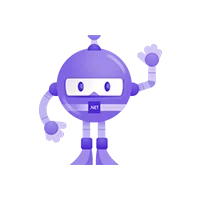Ethics in Artificial Intelligence (AI) is a critical field of study and practice that explores the moral and societal implications of AI technologies. It involves examining how AI systems make decisions, their impact on individuals and society, and the ethical principles that should guide their development and use. In an increasingly AI-driven world, understanding and addressing these ethical concerns are essential to ensure that AI benefits humanity while minimizing potential harm.
AI ethics touches on various important issues, including fairness and bias in algorithms, transparency and accountability in decision-making, privacy and data security, and the potential for AI to reinforce existing societal inequalities. Ethical considerations also extend to areas like autonomous vehicles, healthcare, and military applications, where AI can have significant real-world consequences.
Striking a balance between innovation and ethical responsibility is a key challenge in the development and deployment of AI technologies, and it requires the collaboration of technologists, policymakers, ethicists, and the broader society to establish guidelines and standards that align AI advancements with our shared values and well-being. There are AI ethicists who look into this matter.
In this article, we have included everything about ethics in Artificial Intelligence that you must know before starting your career in Artificial Intelligence.
Challenges AI is facing

AI faces several pressing ethical challenges. These challenges continue to evolve with advancements in AI technology and its increasing integration into various aspects of our lives. Some of the key ethical problems in AI include:
AI algorithms can inherit biases from the data they are trained on, leading to unfair or discriminatory outcomes. This bias can affect areas like hiring, lending, and criminal justice, disproportionately impacting certain groups.
The widespread collection and analysis of personal data by AI systems raise privacy issues. AI-driven surveillance, data breaches, and the tracking of individuals without their consent are areas of concern.
- Transparency and Accountability:
AI algorithms often operate as “black boxes,” making it challenging to understand how they arrive at their decisions. Ensuring transparency and accountability in AI decision-making is crucial, especially in contexts like healthcare and autonomous vehicles.
Automation through AI has the potential to disrupt traditional job markets, leading to job displacement for certain workers. Preparing the workforce for these changes and addressing potential unemployment issues is an ongoing challenge.
AI can be used for malicious purposes, such as creating deepfake videos, cyberattacks, and autonomous weapon systems. Managing these security risks and establishing ethical boundaries is essential.
AI-powered algorithms on social media platforms can manipulate user behavior, spread misinformation, and contribute to polarized online environments. Addressing the impact of AI on society’s information ecosystem is a significant concern.
- Autonomous Systems and Decision-Making:
The deployment of AI in autonomous vehicles, drones, and military applications raises questions about the ethical implications of machines making life-or-death decisions without human intervention.
AI-driven resource allocation in healthcare, education, and other sectors may have ethical implications, as decisions about who receives resources are often based on complex algorithms.
The energy consumption of AI infrastructure, particularly large-scale machine learning models, contributes to environmental concerns. Reducing AI’s carbon footprint is an emerging ethical issue.
Developing appropriate regulatory frameworks and standards for AI to ensure ethical development and use while fostering innovation is a complex and ongoing challenge for policymakers worldwide.
It’s important to note that addressing these ethical problems requires collaboration among technology developers, policymakers, ethicists, and the public. As AI continues to advance, staying vigilant and proactive in addressing these ethical challenges is crucial to harness its benefits while mitigating potential harms.
What are the principles to establish for AI Ethics?
The following are the principles to establish AI ethics:
People should have control over AI systems that affect their lives. They should be able to make decisions based on their values and preferences, and AI should not unduly influence or manipulate their choices.
- Non-Harm and Avoidance of Maleficence
AI systems should not cause harm, whether physical, psychological, or societal. Developers should take measures to prevent AI from being used for malicious purposes.
- Fair Distribution of Benefits:
The benefits of AI should be distributed equitably, and efforts should be made to avoid exacerbating existing societal inequalities.
- Continuous Monitoring and Evaluation:
Regular assessments of AI systems should be conducted to identify and rectify ethical issues. This includes ongoing monitoring for bias, privacy breaches, and other ethical concerns.
- Ethical Research and Development:
Ethical considerations should be integrated into every stage of AI development, from data collection and model training to deployment and maintenance.
- Global Cooperation and Standards:
The international community should collaborate to establish ethical standards and guidelines for AI development and use, ensuring a consistent global approach.
How to establish ethics in Artificial Intelligence
Establishing ethics in AI requires a multi-faceted approach involving various stakeholders, including developers, organizations, policymakers, and the broader society. Here’s a step-by-step guide on how to establish ethics in AI:
- Define Ethical Guidelines:
Begin by defining clear ethical guidelines and principles that align with your organization’s values and broader societal norms. Consider established frameworks such as the Asilomar AI Principles or the AI Ethics Guidelines from leading institutions.
Leadership within your organization should champion ethical AI practices. Create a culture that values ethics, accountability, and transparency.
Form ethics committees or boards within your organization to provide guidance and oversight on AI projects. Include experts in AI ethics, legal compliance, and relevant domains.
- Ethical Impact Assessment:
Implement an ethical impact assessment process for AI projects. This involves evaluating the potential ethical implications, biases, and societal consequences of AI systems at different stages of development.
Establish strict data governance policies. Ensure that data used for AI training is diverse, representative, and free from biases. Implement data anonymization and protection measures.
- Transparency and Explainability:
Prioritize transparency and explainability in AI systems. Make sure that AI decisions are understandable and can be explained to users.
Develop strategies to identify and mitigate bias in AI algorithms and data. Regularly audit AI systems for fairness and bias, and take corrective actions when necessary.
Obtain informed user consent for collecting and using their data. Clearly communicate how AI will be used and allow users to opt-out or control their data.
Support organizations that promote ethical AI
Supporting organizations that promote ethical AI is crucial for advancing responsible AI development and use. These organizations often work to establish guidelines, conduct research, advocate for ethical standards, and provide resources to ensure AI technologies benefit society while minimizing harm. Here are some notable organizations you can support or engage with:
- OpenAI: OpenAI focuses on developing AI in a way that benefits all of humanity. They promote transparency, accountability, and safety in AI research and are known for their work on ethical AI, including initiatives like the OpenAI Charter.
- AI Ethics Lab: The AI Ethics Lab is dedicated to addressing ethical challenges in AI. They conduct research, offer workshops, and develop tools to help organizations navigate ethical issues in AI development and deployment.
- AI Now Institute: This research institute at New York University concentrates on the societal implications of AI. They publish influential reports and advocate for policies that ensure fairness, accountability, and transparency in AI.
- Partnership on AI: A collaborative platform that brings together leading technology companies, civil society organizations, and academic institutions to advance responsible AI. They work on creating industry standards and best practices.
- Center for Humane Technology: While not exclusively focused on AI, this organization raises awareness about the ethical and societal impacts of technology, including AI. They advocate for humane and ethical design in tech products.
- The Algorithmic Justice League: Founded by Joy Buolamwini, this organization addresses bias and discrimination in AI, particularly in facial recognition technology. They advocate for fair and accountable AI systems.
- AI4ALL: AI4ALL is dedicated to increasing diversity and inclusion in AI and technology. They offer educational programs and mentorship opportunities to underrepresented groups in AI.
The post How to Art Ethics in Artificial Intelligence| Learn all about AI Ethics appeared first on .
Tags:
- Artificial intelligence
- ai art ethics
- ai benefits
- ai ethicist
- ai ethics
- ethics in ai
- impact of AI

 .NET MAUI Development
.NET MAUI Development
 Xamarin Application Development
Xamarin Application Development
 React Native App Development
React Native App Development
 iOS Application Development
iOS Application Development
 Android Application Development
Android Application Development
 Android Wear App Development
Android Wear App Development
 Ionic Development
Ionic Development
 iBeacon Application Development
iBeacon Application Development
 Universal Windows Platform (UWP)
Universal Windows Platform (UWP)
 Kotlin Application Development
Kotlin Application Development
 Swift Application Development
Swift Application Development
 Flutter Application Development
Flutter Application Development
 PWA Application Development
PWA Application Development
 .NET Application Development
.NET Application Development
 .NET Nuke Development
.NET Nuke Development
 Microsoft Dynamics CRM
Microsoft Dynamics CRM
 Microsoft Small Business Solution
Microsoft Small Business Solution
 VB .NET Development
VB .NET Development
 C# Development
C# Development
 Sharepoint Migration
Sharepoint Migration
 Sharepoint Development
Sharepoint Development
 ASP.NET Core Development
ASP.NET Core Development
 ASP.NET Development
ASP.NET Development
 ASP.NET MVC Development
ASP.NET MVC Development
 Kentico CMS
Kentico CMS
 Umbraco CMS
Umbraco CMS
 AJAX Development
AJAX Development
 Agile Development
Agile Development
 Microsoft Bot
Microsoft Bot
 Microsoft Blazor
Microsoft Blazor
 Microsoft Azure Cognitive
Microsoft Azure Cognitive

 Mean Stack Development
Mean Stack Development
 Vue JS Development
Vue JS Development
 Javascript Development
Javascript Development
 Angular JS Development
Angular JS Development
 Next JS development
Next JS development
 Java Development
Java Development
 Python Development
Python Development
 Django Development
Django Development
 Cherrypy Development
Cherrypy Development
 NodeJS Development
NodeJS Development
 Laravel Development
Laravel Development
 CodeIgniter Development
CodeIgniter Development
 Zend Development
Zend Development
 Ruby on Rails Development
Ruby on Rails Development
 CakePHP Development
CakePHP Development
 PHP Website Development
PHP Website Development
 Symfony Development
Symfony Development
 Drupal Development
Drupal Development
 Joomla Development
Joomla Development
 Wordpress Development
Wordpress Development
 Offshore Software Development
Offshore Software Development
 Custom Application Development
Custom Application Development
 Full Stack Development
Full Stack Development
 AI & Machine Learning
AI & Machine Learning
 Custom CRM Solutions
Custom CRM Solutions
 Flask Software Development
Flask Software Development
 Electron JS Development
Electron JS Development
 ChatGPT Development
ChatGPT Development
 Magento Development
Magento Development
 Magento 2.0 Development
Magento 2.0 Development
 Magento Enterprise
Magento Enterprise
 Shopping Cart Development
Shopping Cart Development
 Prestashop Development
Prestashop Development
 Shopify Development
Shopify Development
 Open Cart Development
Open Cart Development
 WooCommerce Development
WooCommerce Development
 BigCommerce Development
BigCommerce Development
 NopCommerce Development
NopCommerce Development
 Virto Commerce Development
Virto Commerce Development
 AspDotNetStorefront Development
AspDotNetStorefront Development
 RaspBerry Pi
RaspBerry Pi
 Firmware Software Development
Firmware Software Development
 ESP 32 Software Development
ESP 32 Software Development
 Embedded Development
Embedded Development
 Internet of Things
Internet of Things
 Nordic Development
Nordic Development
 HTML 5
HTML 5
 UI/UX Design
UI/UX Design
 Graphic Design
Graphic Design
 Adobe Photoshop
Adobe Photoshop
 XML Application Development
XML Application Development
 Cloud Computing Solutions
Cloud Computing Solutions
 Azure Cloud App Development
Azure Cloud App Development
 AWS Development
AWS Development
 Google Cloud Development
Google Cloud Development
 SQL Programming Development
SQL Programming Development
 MySQL Development
MySQL Development
 MongoDB Development
MongoDB Development
 Big Data
Big Data
 Robotic Process Automation
Robotic Process Automation
 Social Media Marketing
Social Media Marketing
 Search Engine Optimization
Search Engine Optimization
 QA Testing
QA Testing
 Software Testing
Software Testing
 Software Security
Software Security
 Maintenance And Support
Maintenance And Support
 I.T. Consulting Services
I.T. Consulting Services
 Business Intelligence
Business Intelligence
 YII Development
YII Development
 Data Analysis
Data Analysis
 Alexa Skills Development
Alexa Skills Development
 On Demand App for Mobile repairing services
On Demand App for Mobile repairing services
 On Demand App for Car Service Booking
On Demand App for Car Service Booking
 On Demand App for Cleaning Services
On Demand App for Cleaning Services
 On Demand App for Pharmacy
On Demand App for Pharmacy
 On Demand Dedicated Developers
On Demand Dedicated Developers





Leave a Reply